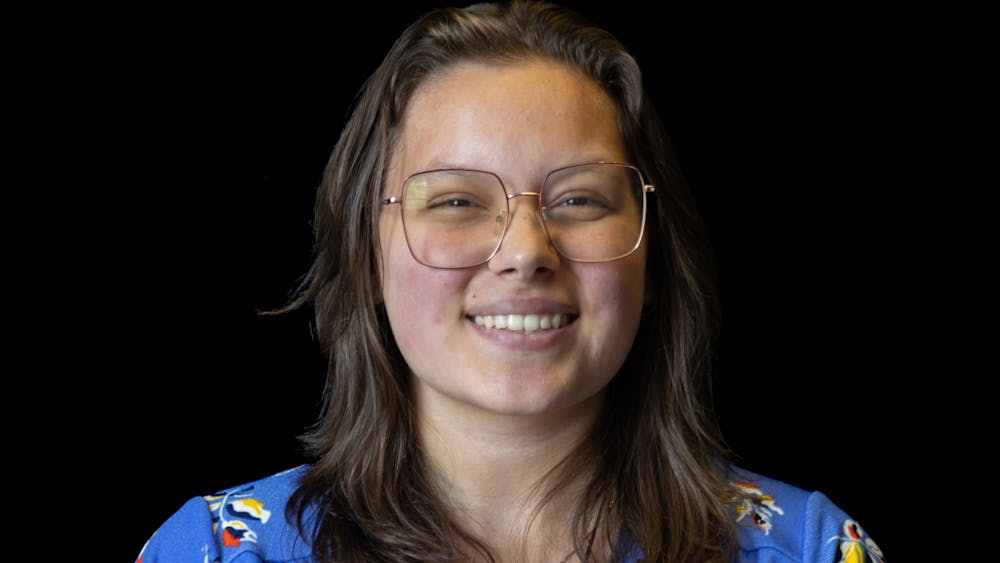Class discusses racism, discrimination
At the beginning of each semester, students in LAR 145 fill out a questionnaire that asks how pervasive they think racism still is in society on a scale of one to 10.
Humanities faculty member Ulana Klymyshyn, one of the professors of the course, was surprised to see that every student responded within the 5-10 range. She often gets responses that say racism is no longer an issue.
"LAR 145: Racism and Discrimination in America through Dialogue" is a course in which students have the opportunity to discuss how race and discrimination affects them.
Sometimes the students in the course are together in a traditional classroom. During alternating weeks, different groups within the class meet for smaller dialogue sessions with student facilitators. This semester, there are 12 student facilitators. The course is offered in three sections, compared to one section last semester.
Issues of discrimination including racism, sexism and classism are still being debated today. However, students can be reluctant to explain their opinions on these issues, Klymyshyn said, because they feel as though people won't listen.
Through dialogue, Klymyshyn said she hopes students learn to listen to each other and understand each other's experiences.
In the course, peer facilitators are paired and trained to lead conversations. Instructors are not present during discussions and what is said during dialogue stays there.
This Intergroup Dialogue program began at the University of Michigan and now exists at a number of universities.
Philosophy and religion faculty member Andrew Blom, the other professor who teaches sections of the course, said he would love to offer multiple dialogue courses like University of Michigan does, but right now, they're limited to one course.
"I would love to see dialogue become part of the experience of every student at CMU," Blom said. "I would love there to be enough support of the university for this program. We could run more classes, have enough faculty to teach them, to have every student who comes into CMU have courses of intergroup dialogue focused on social justice to be able to foster an inclusive, diverse environment at the university."
Port Huron sophomore Alesondra Christmas and the facilitator she works with turned the desks into a circle and facilitated with a koosh ball so everyone had the opportunity to share and listen.
A facilitator will ask a question then will either create more based on what was said or continue with their original dialogue plan. Sometimes there are also activities, such as a privilege activity where students could see what areas they're privileged in.
"Dialogue is beneficial for learning because a lot of times, we're taught to learn from just books in school then we're tested on basically how well you spit it back out," Christmas said. "In dialogue, you really have to listen to other people, so it's not just the people who wrote the history books that teach you something, it's the people you're sitting next to every day," Christmas said.
Detroit senior Donovan Watts, another facilitator for the course, said the most challenging part of leading conversations is getting students to open up, especially white students who might be afraid of offending someone.
To help students become more comfortable with speaking up, Watts assures them it's OK for them to share what they think. He also uses his own personal stories.
If someone says something that offends someone, that person can say "ouch" then the person who said it will says "oops" and explain why they said it. Watts said dialogue can also be applied to other issues and conversations.
"Instead of it being a debate about who is right, it's more of a way to just talk and hear everyone's opinion and how they feel about a topic," Watts said.
Watts said it's always beneficial for students to discuss discrimination, whether it's race, gender, gender identity or something else.
"I have certain privileges I wasn't aware of, like being able bodied, so it's really opened up my mind to a lot of situations I was close minded to before," Watts said.
Dialogue allows people to share their experiences rather than what they've been told to think, Christmas said.
Klymyshyn said students who don't experience certain kinds of discrimination often don't believe that it still exists or is as harmful as it is. This, she said, creates a barrier for understanding people.
"We tend to push (racism) under the rug so being able to discuss it is always the first step toward bringing it out in the open," Watts said.




